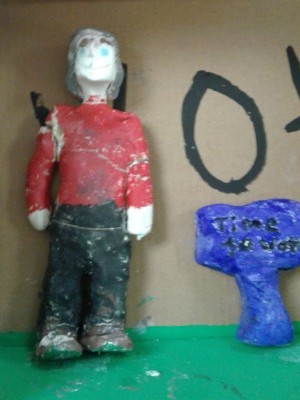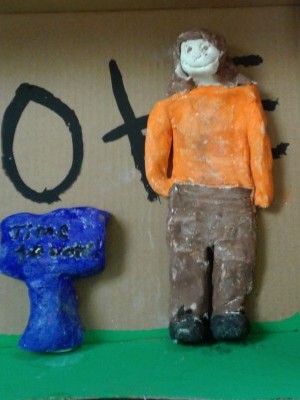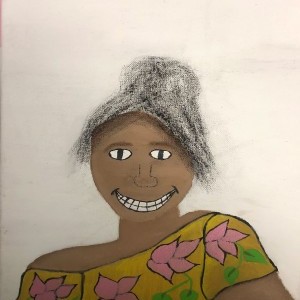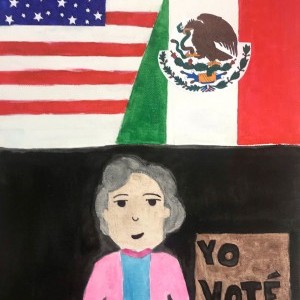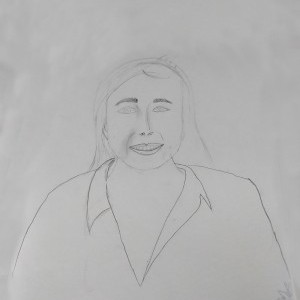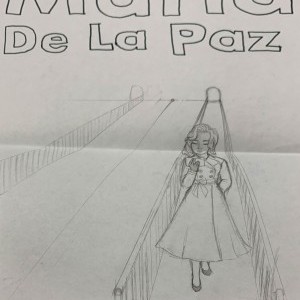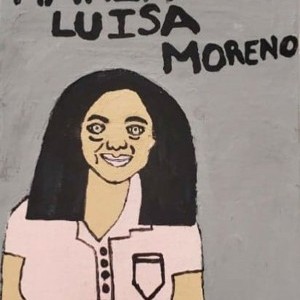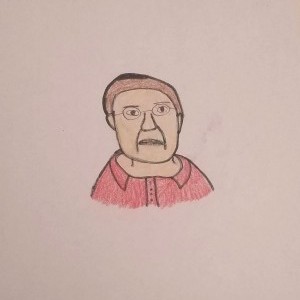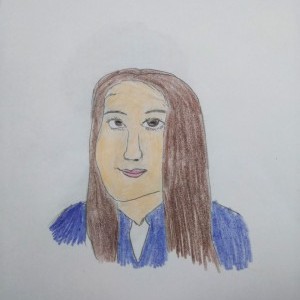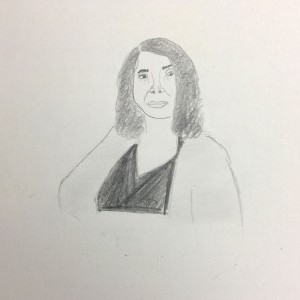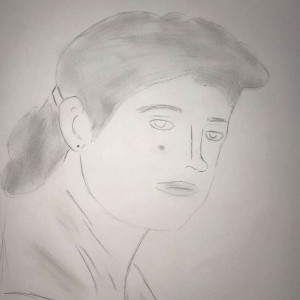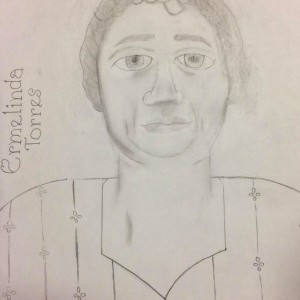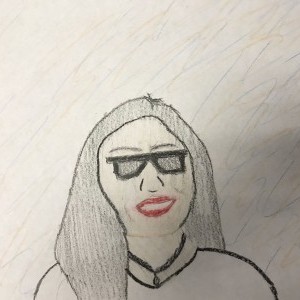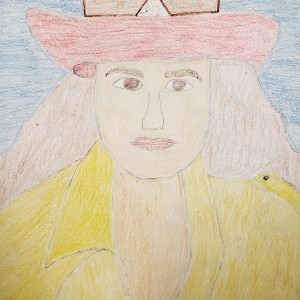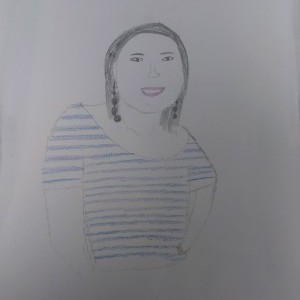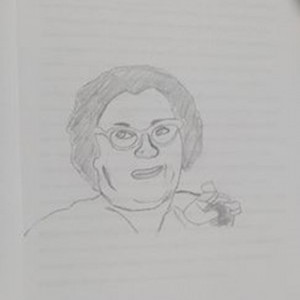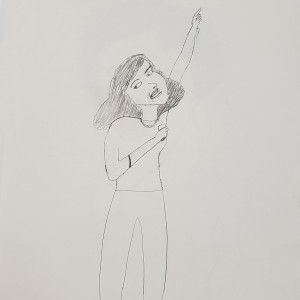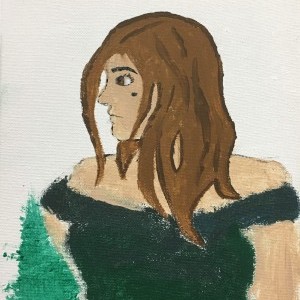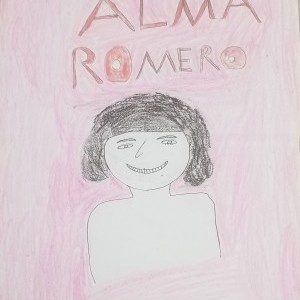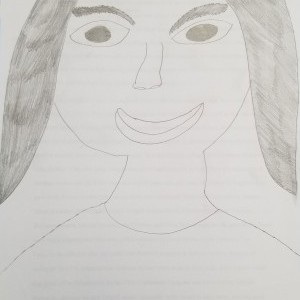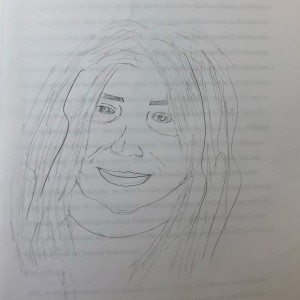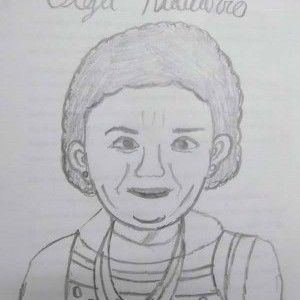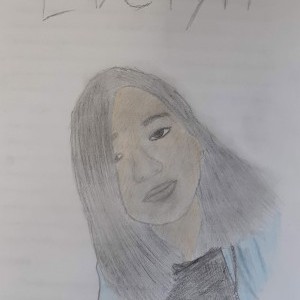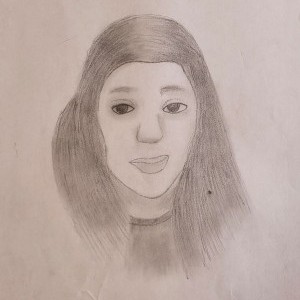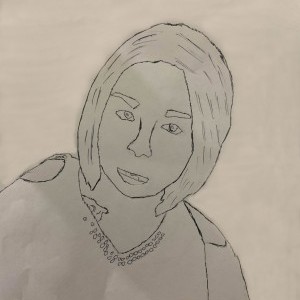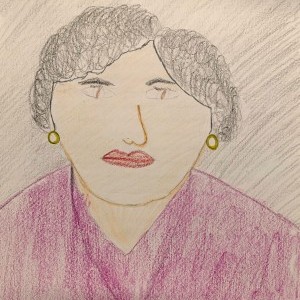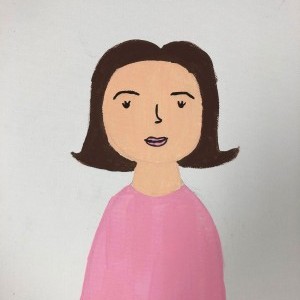Samantha Montemayor
García Early College High School | Laredo, TX | 10th Grade
Inspirational Family Member
Aide Montemayor
Before the year of 1920, women were not allowed to have equality with men and were not allowed to vote. Women were expected to just do all the housework, take care of their children, and should be submissive to their husbands. However, that all changed on August 18, 1920 when women were granted the right to vote. My grandparents were both still living in Mexico when my mother, Aide Montemayor, was born but they decided to move to the US for them and their daughter to have a better life and great opportunities. My grandmother is currently a resident of the United States, because she decided that she did not want to become a US citizen, which does not allow her the right to vote. My mother, however, became a US citizen in the year 1997, which led her to be the first female in my family to have the right to vote and have her opinion be heard just like any other woman.
Aide Montemayor was born on November 20, 1975 in Sabinas Hidalgo, Nuevo León, Mexico. She is the first-born child of my grandparents, Etelvina Solis and Jose Soledad Solis. She did not have the right to vote until the year 1997 at the age of 22, when she became a US citizen, since she was not born one. The year that Aide could vote however, did not have a presidential election. The most recent year that had held a presidential campaign was 1996. During this campaign, William J. Clinton, Robert Dole, and Ross Perot were all competing against each other to see who would become president. Since she was not able to vote during that year, the first year that she voted was the year 2000. This campaign was when the candidates George W. Bush, Albert Gore, Jr., and Ralph Nader were all competing against each other for a chance to become president. She wanted to vote because she wanted to show her opinion and wanted to better her community.
Historical Figure I Admire
Frances Power Cobbe
As a person, Frances Power Cobbe dreamt that she could have made her own mark and could do "masculine" service within her community. However just like other women before her, she was not supposed to question the status quo and was expected to go through life without any interest outside the home, which was at that time “a woman's whole existence.”
She was a member of the Married Women's Property Committee and in 1867 joined the London Society for Women's Suffrage. The society helped lay down the foundations for the women's suffrage movement. Frances Power Cobbe was known as a founder of the animal rights movement; this meant that she was strongly against the experiments that scientists did on animals for medical purposes and wanted to put an end to it. Power Cobbe was an independent woman who strived to improve things for the better.
Frances Power Cobbe was born on December 4, 1822 in Newbridge House, Ireland. Her parents were good and wise and were also honorable people. Her father, named Charles Cobbe, was an energetic man and worked in administration while her mother was a house wife. Frances didn't remember much of her mother, but she remembered that she was pretty and kind. Frances had five brothers, with her being the youngest of the siblings. A few months after her birth, Frances and her family moved to a house in Melksham, but later when Frances was four years old they moved back to Newbridge and saw her good old Irish nurse named Mary Malone, she was nice. Finally, at the age of five she was let out of the nursery. Later in 1836, her mother took her to a school in Brighton, and Frances was sad because her mother had left her. Her mother attended the same school as a child and at that time the school was strict.
Frances wanted to make sure that she wrote about the school. Frances had a love for art and wrote many small essays and stories. She was also interested in reading articles that were translated in French. When Frances was thirty years old, she had an attack of bronchitis that almost killed her. While she was recovering, she was reflecting on how her life was strong and happy, but she had done nothing to help any other human soul to find the solution to the dreaded problem, solution that had brought peace to her. This pushed her to write her first book about conveying her own convictions for people to read. Her book "The Theory of Intuitive Morals" was then published and went through several editions. In it, Frances argumented the Kantian thought that "the moral imperative within one's own breast was independent of outward authority and tradition, and was the proof of the existence of God."
After her father's death she used her inheritance to go on an eleven-month journey to Italy, Greece and many more countries. In the year 1861, she began writing articles and pamphlets on the plight of the poor, particularly the children and women, based on her visits to hospitals and poor houses in England, Italy, and France. She brought up the cause of women's suffrage in meetings and said, “Ours is the old, old story of every uprising race or class or order,” “The work of elevation must be wrought by ourselves or not at all.” Her main focus was on victims of abuse. She later wrote an article called “Truth on Wife Torture,” which inspired a bill in parliament for the legal separation of wives from husbands found guilty of assault against them.
Frances Power Cobbe became one of the most important nineteenth-century British writers and was an activist. She was centrally located in London, where there were intellectuals that would be in the era's significant debates. She was also a woman who respected religious and moral thinkers. She would always promote university degrees for women. She published in prestigious journals and many monthly magazines. Frances Power Cobbe would also help delinquent girls and poor or sick people. She died at the age of eighty-two on April 5, 1904. All in all, Frances Power Cobbe was a nice and kind woman who fought for women's suffrage through campaigns and pamphlets and wanted to make an impact on the community by ending animal experiments and supporting women's suffrage.
SOURCES +
What the Project Means to Me
While doing my research I realized how lucky and privileged I am to have the right to vote. There are many other countries that do not have the same opportunities as I do, and I feel very grateful for that. I feel that if women today didn't have the right to vote, the results of a campaign would have a very different outcome. I feel that if today women were not able to vote while men could, I would feel very angry and disrespected, which would lead me to want to change that law. Voting not only gives you the sense that you have a say in who you believe would help your community but also, makes you feel a sense of equality.
My mother, Aide Montemayor, being the first woman to vote in our family, is making a huge impact and can influence our future generations to vote and make their voices heard. By voting, many women can have their opinions heard and make their own decision on what they think is best for them instead of having people choose what is best for them. I feel that each woman should have the right to vote and should not be told that they shouldn't vote. Just like my mother, many other Americans decide to vote to make a difference in the community, show their opinions, and most importantly show that they can take a part in making history in their country or their community.
Explore the Archive
More From This Class
Click on the thumbnails below to view each student's work.Deadline Extended
There's still time to join Women Leading the Way.
Become a part of our storytelling archive. Enroll your class today.
Join the Project

